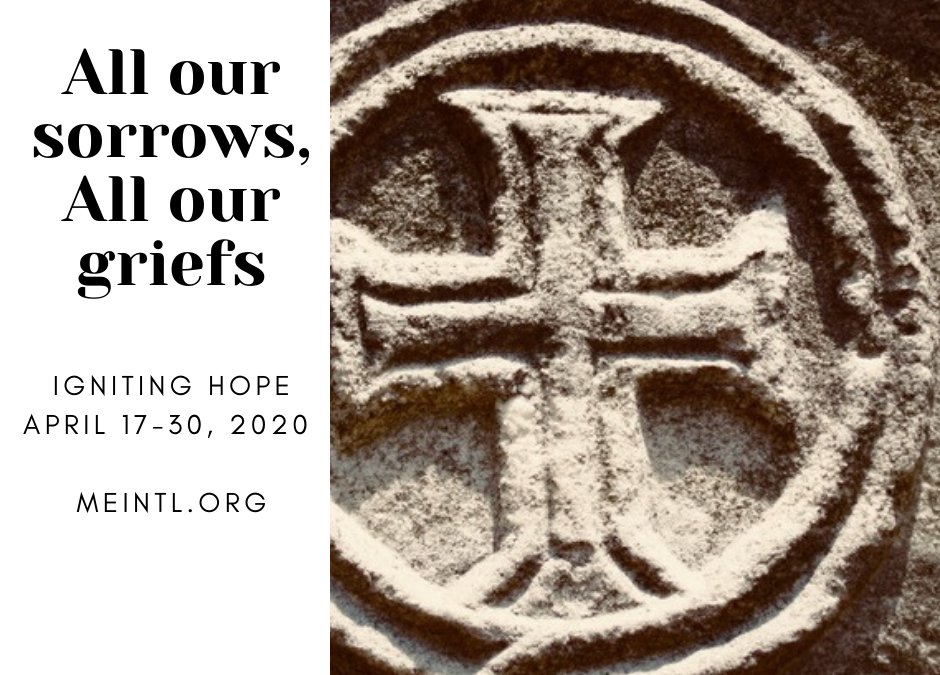This COVID-19 pandemic has thrust our unprepared world into a time of global trauma. Irrespective of gender, age, race, nationality, socio-economic status, religious belief or faith, COVID has burned across the face of the globe, infecting over 2,000,000 people and taking over 120,000 lives. With more to come.
Trauma always brings suffering and loss. And loss brings grief.
After trauma, our soul twists and heaves with heart-rending cries that, unless expressed, turn us to bitterness and judgment—against both man and God. We can become cynical, numb, or falsely pious. Unexpressed grief in the midst of the kind of COVID-suffering we are currently experiencing is a violence against our souls. A denial against who God has designed us to be—fully human. He doesn’t call us to “shush-up” our tears or our questions like an irritated parent after a long day. He invites us into expression. To naming our losses through the language of lament.
When we stuff our feelings, our hearts become hard and numb. When we allow ourselves to feel them and express them, our hearts become soft and we can engage with God more authentically. Lament, then, becomes the bridge that leads us from numb disconnection to intimate connection with God and others.
In our grief and sorrow, we cry out our anguish, our despair, our disbelief, our confusion, our anger. The full range and expression of emotions. It is the cry of “where are you, God?” “Why didn’t you prevent this?” “Why are you silent?” “Why did you abandon me?” “You aren’t doing what I thought you would.” “This is unfair, unjust.”
The poetry of the Psalms gives us an expressive framework for our lament. Each of the psalms of lament gives us words of complaint, emotion, confession, petition, argument, assurance, and hope. Lament is our gift of connection and intimacy in these days of trauma, loss, and grief.
ACTION: Read Psalm 13 slowly. Then read it a second and third time. Perhaps take a different physical position (standing, sitting, kneeling, walking) with each reading. What words or phrases resonate with what you are feeling and experiencing in this COVID time? What shifted as you changed position? As you notice and name your feelings, perhaps you might like to write your own psalm of lament. (For help in writing your lament, use our digital resource “The Practice of Lament Exercise.”)


